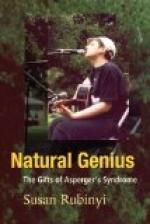SIN.
“Lord, with what care
hast thou begirt us round!
Parents first
season us; then school-masters
Deliver us to
laws; they send us bound
To rules of reason, holy messengers.
“Pulpits and Sundays,
sorrow dogging sin,
Afflictions sorted,
anguish of all sizes,
Fine nets and
stratagems to catch us in,
Bibles laid open, millions
of surprises.
“Blessings beforehand,
ties of gratefulness.
The sound of Glory
ringing in our ears:
Without, our shame;
within, our consciences:
Angels and grace, eternal
hopes and fears.
“Yet all these fences
and their whole array,
One cunning bosom-sin blows
quite away.”
These poems, it should be remembered, are private devotional heart-confessions, not written for sale, for pay or reputation; they were not printed at all during the author’s life, but were brought forth by faithful friends from the sacred coffer of his dying-room, in order that posterity might know the secret of that honorable life and its cheerful end. Izaak Walton has given a beautiful setting to one stanza from the eloquent ode “Sunday.” “The Sunday before his death,” his biographer tells us, “he rose suddenly from his bed or couch, called for one of his instruments, took it into his hand, and said:
“’My God, my God
My music shall find thee,
And every string
Shall have his attribute to sing.
And having tuned it, he played and sung:
“’The Sundays of man’s life,
Threaded together on time’s string,
Make bracelets to adorn the wife
Of the eternal glorious King.
On Sundays, heaven’s door stands ope;
Blessings are plentiful and rife;
More plentiful than hope.’
“Thus he sung on earth such hymns and anthems as the angels and he, and Mr. Farrer, now sing in heaven.”
As we have fallen upon this personal, biographical vein, and as the best key to a man’s poetry is to know the man and what he may have encountered, we may cite the poem entitled “The Pearl.” It is compact of life and experience: we see the courtier and the scholar ripening into the saint; the world not forgotten or ignored, but its best pursuits calmly weighed, fondly enumerated and left behind, as steps of the celestial ladder.
THE PEARL.
“I know the ways of learning; both the head
And pipes that feed the press, and make it run;
What reason hath from nature borrowed,
Or of itself, like a good housewife, spun
In laws and policy; what the stars conspire;
What willing nature speaks, what forc’d by fire;
Both th’ old discoveries, and the new-found seas;
The stock and surplus, cause and history:
All these stand open, or I have the keys:
Yet I love thee.




